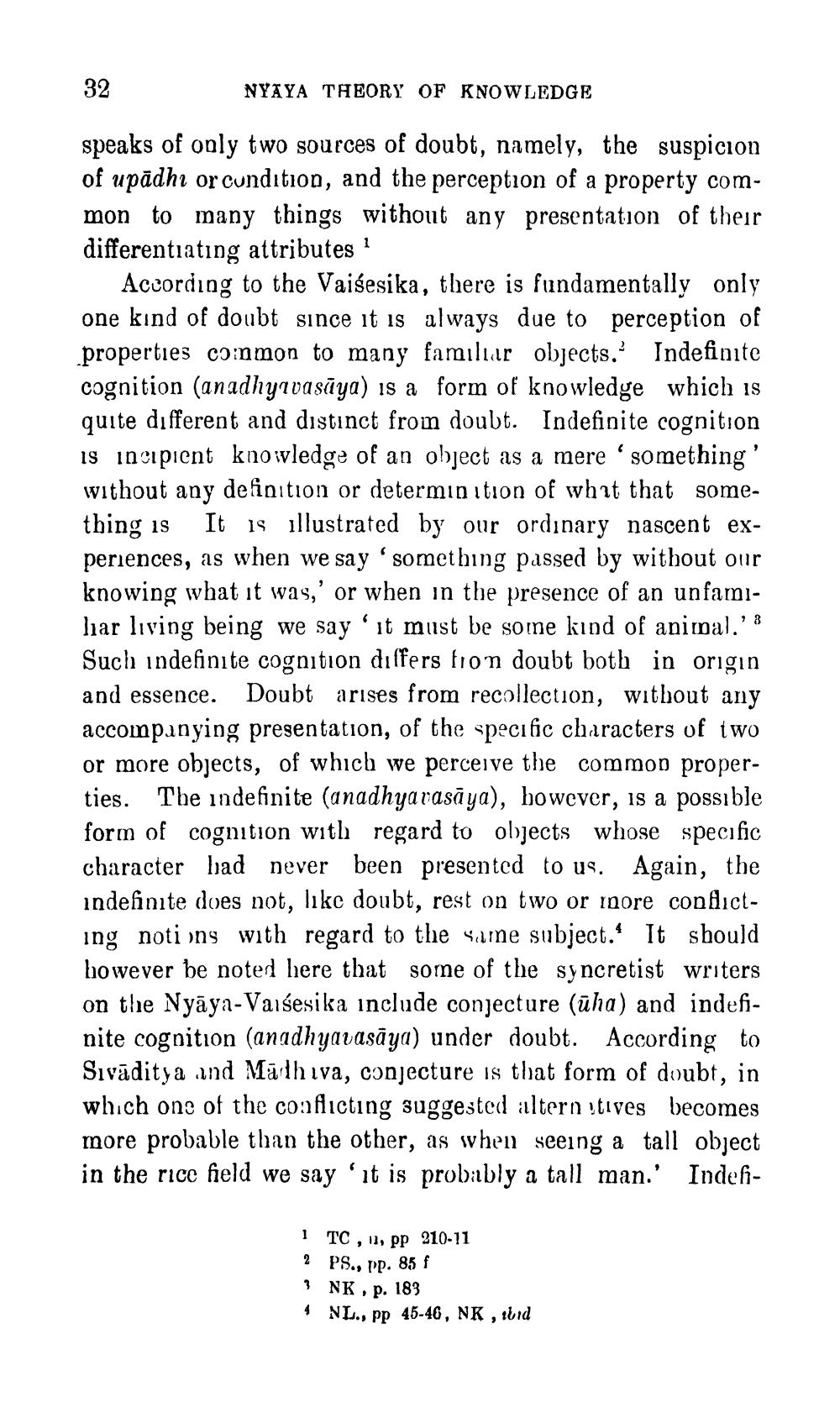________________ NYAYA TAEORY OF KNOWLEDGE speaks of only two sources of doubt, namely, the suspicion of upadhi or condition, and the perception of a property common to many things without any presentation of their differentiating attributes According to the Vaisesika, there is fundamentally only one kind of doubt since it is always due to perception of properties coinmon to many familiar objects. Indefinite cognition (anadhyrvasuya) is a form of knowledge which is quite different and distinct from doubt. Indefinite cognition is incipient knowledge of an object as a mere 'something' without any definition or determinition of what that something is It is illustrated by our ordinary nascent experiences, as when we say 'something passed by without our knowing what it was,' or when in the presence of an unfamiliar living being we say it must be some kind of animal.' : Such indefinite cognition differs from doubt both in origin and essence. Doubt arises from recollection, without any accompanying presentation, of the specific characters of two or more objects, of which we perceive the common properties. The indefinite (anadhya rasaya), however, is a possible form of cognition with regard to objects whose specific character had never been presented to us. Again, the indefinite does not, like doubt, rest on two or inore condicting notions with regard to the same subject. It should bowever be noted here that some of the syncretist writers on the Nyaya-Vaisesika include conjecture (uha) and indefinite cognition (anadhyavasaya) under doubt. According to Sivaditya and Malhiva, conjecture is that form of doubt, in which one of the conflicting suggested alterntives becomes more probable than the other, as when seeing a tall object in the rice field we say 'It is probably a tall man.' Indef 1 TC, 11, pp 210-11 2 PS., pp. 85 f 3 NK, p. 183 4 NL., pp 45-46, NK , ibid




